|
In the hustle and bustle of our daily lives, we often find ourselves prioritizing the needs of others, neglecting our own well-being. International Self-Care Day serves as a gentle reminder to pause, breathe, and take time for ourselves. At Greater Houston Counseling Services (GHCS), we believe that self-care is not just a luxury but a necessity to lead a balanced and fulfilling life. Join us as we celebrate this special day and explore the power of self-care in nurturing our mental and emotional health. Understanding Self-Care: Self-care is not merely a one-time indulgence but a continuous practice that involves taking deliberate actions to care for our physical, emotional, and mental well-being. It encompasses various activities and habits that nourish our mind, body, and spirit. From engaging in relaxation techniques to seeking support from others, self-care is an essential tool in managing stress, building resilience, and promoting overall wellness. Caring for Your Mind: Amid the constant stream of responsibilities and challenges, it's crucial to prioritize mental well-being. Engaging in activities that foster mindfulness and relaxation can significantly impact our emotional health. Whether it's meditating, journaling, or engaging in a hobby, carving out time for reflection and self-awareness can lead to greater clarity and emotional balance. Caring for Your Body: Taking care of our physical health is equally vital for overall well-being. Incorporating regular exercise, nourishing meals, and adequate sleep into our routines can boost our energy levels and enhance mood. Remember, even a short walk or a nutritious snack can make a difference in how we feel throughout the day. Caring for Your Emotions: Emotional self-care involves acknowledging and expressing our feelings in healthy ways. Seeking support from friends, family, or a professional counselor can be empowering, allowing us to navigate through challenging emotions and experiences. At GHCS, our team of dedicated therapists is here to offer compassionate guidance and support on your journey to emotional well-being. Creating a Personalized Self-Care Plan: Self-care is a deeply personal journey, and what works for one person may not resonate with another. It's essential to explore and discover the self-care practices that align with your unique needs and preferences. Our blog series on self-care will delve into various techniques and strategies to help you create a personalized self-care plan that fits seamlessly into your life. Embrace International Self-Care Day with GHCS: This International Self-Care Day, GHCS encourages you to embrace self-compassion and prioritize your well-being. Join us as we embark on a journey of self-discovery and empowerment, celebrating the power of self-care in fostering resilience and enhancing our ability to navigate life's challenges. Stay tuned for our upcoming blog posts and social media updates, where we'll share valuable insights, tips, and resources on self-care. Together, let's nurture our minds, bodies, and spirits as we embark on a path of holistic well-being.
Remember, self-care is not selfish—it's self-love. Happy International Self-Care Day from the GHCS family! #InternationalSelfCareDay #GHCSWellness #SelfLove #MentalHealthMatters #EmbraceWellBeing
2 Comments
As we observe Birth Trauma Awareness Week, at Greater Houston Counseling Services, PLLC, we want to reach out to all those who have experienced or are dealing with the aftermath of birth trauma. We want you to know that you're not alone and that your feelings, your fears, and your pain are valid. Birth trauma is a profound event that can have significant physical and psychological effects on mothers. It's often overlooked or minimized in conversations surrounding childbirth, leaving many women to silently grapple with their experiences. However, it's essential to shine a light on this topic, fostering a more inclusive and empathetic dialogue about childbirth. Birth trauma can manifest in many forms. It could be a physically traumatic experience such as an emergency C-section, a painful labor, or complications post-delivery. Alternatively, it can be emotional trauma stemming from feeling disempowered, unheard, or dismissed during childbirth, or anxiety over the baby's wellbeing. While every woman's experience with birth trauma is unique, common symptoms may include post-traumatic stress disorder (PTSD), anxiety, depression, feelings of shame or guilt, difficulty bonding with the baby, or fear of future childbirth. So, how do we navigate through this? Firstly, acknowledging your trauma is a brave step towards healing. Remember, it's okay to grieve the birth experience you wished you'd had. It's important to understand that it's not your fault, and it doesn't define you as a mother. Open communication is vital. If you're comfortable, share your experiences with supportive family members, friends, or communities who have had similar experiences. This can be an essential part of the healing process, allowing you to feel heard and understood. Professional support, such as therapy or counseling, can be incredibly helpful. At Greater Houston Counseling Services, we offer empathetic and non-judgmental support to help you process your trauma and navigate your path to recovery.
This Birth Trauma Awareness Week, we urge you to reach out if you're struggling. Your mental health matters, and seeking help is a testament to your strength. Remember, it's okay to ask for help, and it's okay to prioritize your healing. Your journey matters, and we are here to support you every step of the way. As we honor National Minority Mental Health Awareness Month, we at Greater Houston Counseling Services, PLLC, want to shed light on an often overlooked aspect of mental health: the intimate relationship between bedtime procrastination and anxiety. Especially in communities of color, mental health can be stigmatized, which is why it's crucial to talk openly about these matters. Bedtime Procrastination: A Quiet Disruptor Bedtime procrastination is a relatively recent term that psychologists use to describe the voluntary delay of bedtime, even when there are no external reasons forcing you to stay awake. You might know you need to sleep, but instead, you continue scrolling through social media, binge-watching shows, or tackling tasks that could wait until morning. The Invisible Chain: Anxiety and Bedtime Procrastination Research shows a profound link between bedtime procrastination and anxiety. Anxiety often results in heightened worry and restlessness, making it challenging to wind down and fall asleep. Conversely, the lack of sleep can trigger anxiety symptoms, forming a cycle that's difficult to break. In essence, our mental health and sleep patterns are interconnected in ways we might not fully recognize. The Vicious Cycle As anxiety levels rise, our mind gets flooded with racing thoughts and apprehensions, which makes it harder to relax and fall asleep. The resulting sleep deprivation can escalate anxiety symptoms further, as our bodies miss out on the critical restorative process sleep provides. This vicious cycle can gradually take a toll on our mental health. Practical Steps to Break the Cycle Breaking this cycle requires intentional effort. Here are a few practical steps:
Prioritizing Mental Health
In honor of National Minority Mental Health Awareness Month, we encourage everyone, especially individuals from minority communities, to break the stigma around mental health. Recognize the intricate links between our daily habits, sleep patterns, and mental health. Let's start a dialogue about anxiety, about bedtime procrastination, and about the importance of a good night's sleep for our overall well-being. We are here to support you in your journey. You're not alone in this, and it's completely okay to reach out for help. At Greater Houston Counseling Services, PLLC, we believe in the power of therapy to transform lives. Don't let anxiety steal your night's rest – together, we can break the cycle. References: National Institute of Mental Health (NIMH) American Psychological Association (APA) National Sleep Foundation In the vast tapestry of our society, the thread that unites us all is our shared human experience. Despite our cultural, racial, or ethnic differences, mental health is a universal aspect of our lives that connects us all. It's no secret that mental health conditions do not discriminate. However, the journey towards mental well-being is not equally accessible to all, particularly for racial and ethnic minority groups. In this blog post, we aim to bring light to these challenges while advocating for a broader acceptance and understanding. Racial and ethnic minorities face unique hurdles in the quest for mental health services. A complex web of systemic barriers, cultural stigma, and inadequate access to quality care intertwines, exacerbating their mental health issues while silencing their struggles. Systemic and societal barriers are often the most significant obstacles. Socioeconomic factors play a significant role, with minorities often grappling with issues like poverty and lack of access to affordable, quality healthcare. However, even when resources are available, the presence of cultural and linguistic barriers can deter individuals from seeking help. The lack of mental health professionals who speak their language or understand their cultural nuances is a glaring gap in the system that needs to be addressed. The societal stigma surrounding mental health is another critical issue. Cultural values and perceptions can often dictate attitudes towards mental health, discouraging individuals from seeking help due to fear of judgment or ostracization. In the realm of mental health services, representation matters. The dearth of mental health professionals from minority backgrounds can often deter individuals from seeking help due to fear of being misunderstood. Increasing diversity within the mental health profession can make a significant difference in encouraging minorities to seek the help they need. However, despite these challenges, there is hope. The conversation about mental health within minority communities is evolving. Advocacy groups, community leaders, and forward-thinking individuals are tirelessly working to break down these barriers and foster a society where mental health care is accessible, inclusive, and culturally competent. As we move forward, let us remember that change begins with understanding. Through open dialogue, education, and empathy, we can foster an environment where individuals from all walks of life feel seen, heard, and understood. Mental health should not be a privilege for the few but a right for all. In the words of renowned psychologist Carl Rogers, "The good life is a process, not a state of being. It is a direction, not a destination." Let us pledge to make this journey towards mental well-being accessible to all, regardless of their racial or ethnic backgrounds. We at Greater Houston Counseling Services are committed to this mission and will continue striving to provide mental health services that are as diverse and vibrant as the communities we serve.
So let's continue to challenge these obstacles, promote acceptance, and work tirelessly towards a more inclusive future for mental health. Because, when it comes to mental health, every mind matters. Until next time, Your friends at GHCS Greetings, Dear Readers! July is upon us, and it brings not only the summer heat but also a vital cause we hold close to our hearts at Greater Houston Counseling Services (GHCS): National Minority Mental Health Awareness Month. This month, we aim to inform, inspire, and ignite conversation around the topic of mental health in minority communities - a subject often swept under the rug due to social stigma and cultural misconceptions. Mental health, without a doubt, is a universal matter that touches every individual, irrespective of race, ethnicity, or socio-economic status. However, it is essential to acknowledge that minority communities often face unique hurdles in their journey towards mental well-being. These challenges, rooted in systemic disparities and cultural nuances, can make mental health support a steep uphill battle for many. According to Mental Health America, minority communities often report higher rates of stress, potentially linked to the burden of experiences such as discrimination, prejudice, and socio-economic hardships. Yet, despite the pressing need, these communities are less likely to have access to mental health services, less likely to use community mental health services, and more likely to receive lower quality care. These stark realities emphasize the need for more accessible, quality mental health services within minority communities, a cause GHCS is fervently committed to. Throughout July, we will explore this vital topic in depth, looking at the unique mental health experiences of diverse communities, discussing why these disparities exist, and most importantly, highlighting the change needed. We'll be sharing stories from our therapists who work tirelessly to provide mental health support to our diverse client base, sharing their insights, challenges, and hopes. As we delve into this essential subject, we would like you, our readers, to join us in the conversation. This dialogue isn't just for mental health professionals or those who have experienced mental health issues. It is a conversation for all of us because mental health affects us all. It's time we break the silence around mental health in minority communities, replace stigma with understanding, and create a supportive environment where everyone feels comfortable seeking help. Let's use National Minority Mental Health Awareness Month as a stepping stone to create ongoing, open conversations about mental health. Let's inform ourselves and others, share resources, lend a listening ear, and above all, extend kindness and empathy to those around us. Together, we can make a significant difference and ensure that mental health care is accessible, effective, and equitable for everyone in our community. Stay tuned, stay informed, and remember - mental health matters, no matter your background. Until next time, Your friends at GHCS Categories All |
Archives
January 2024
Categories
All
|
|
|
Share This Page
Greater Houston Counseling Services
"Making your day a little easier" Phone: (832) 717-7166 |
Four locations across the Houston area |

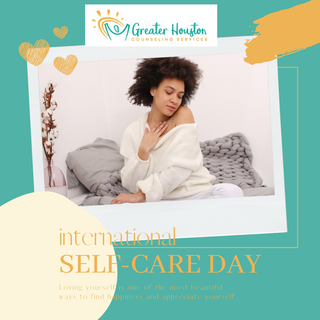
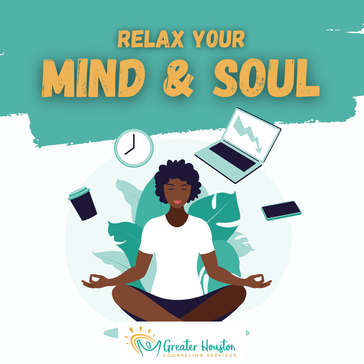
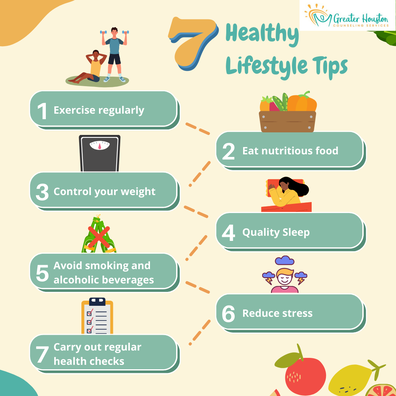
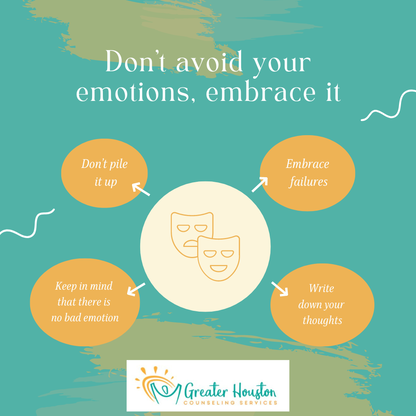
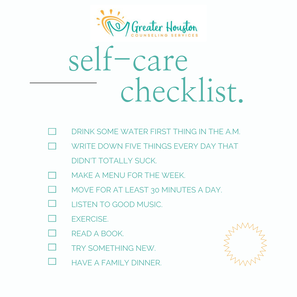
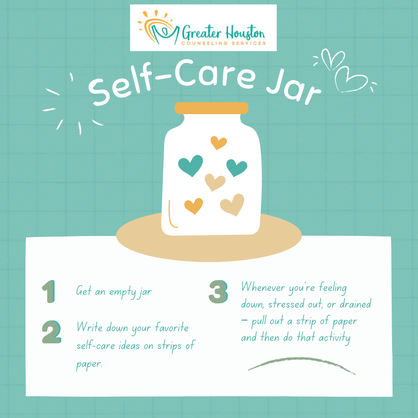
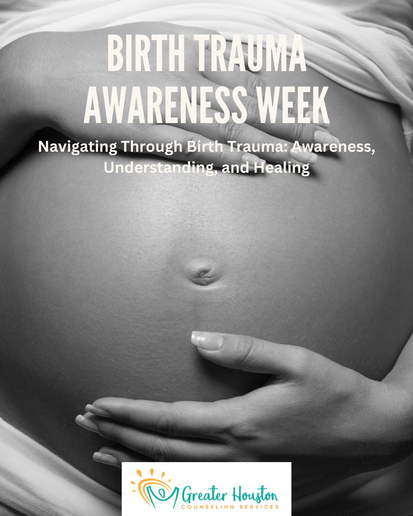
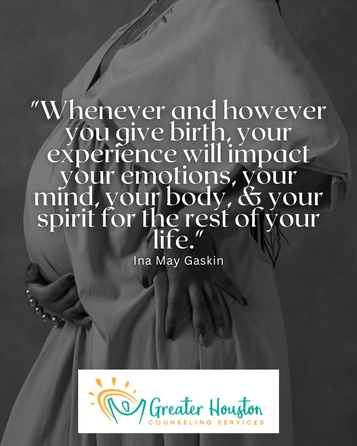
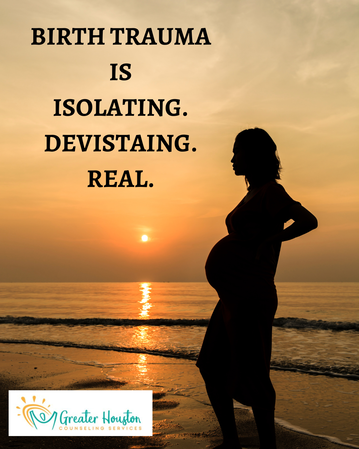
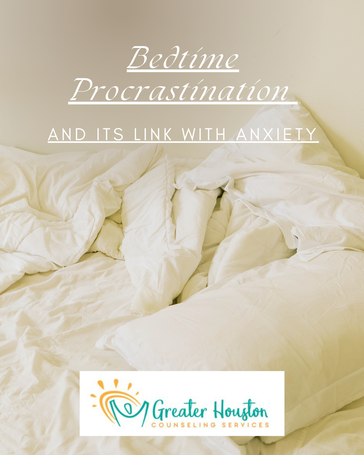
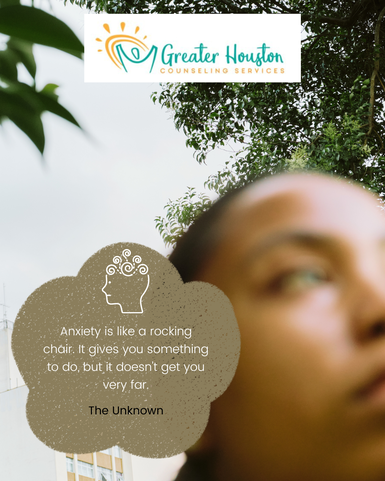
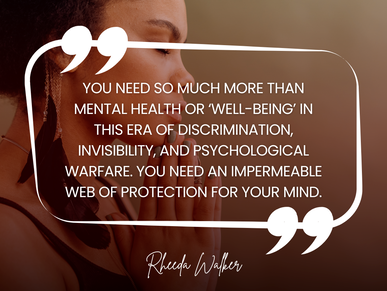
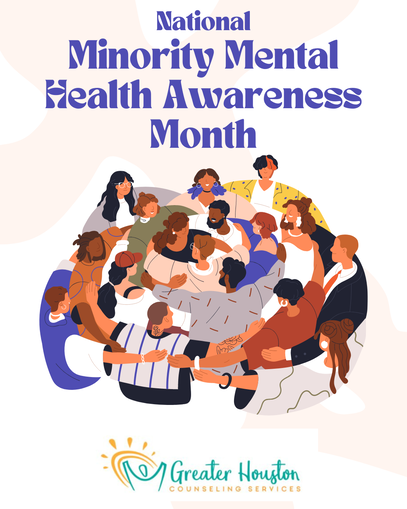
 RSS Feed
RSS Feed